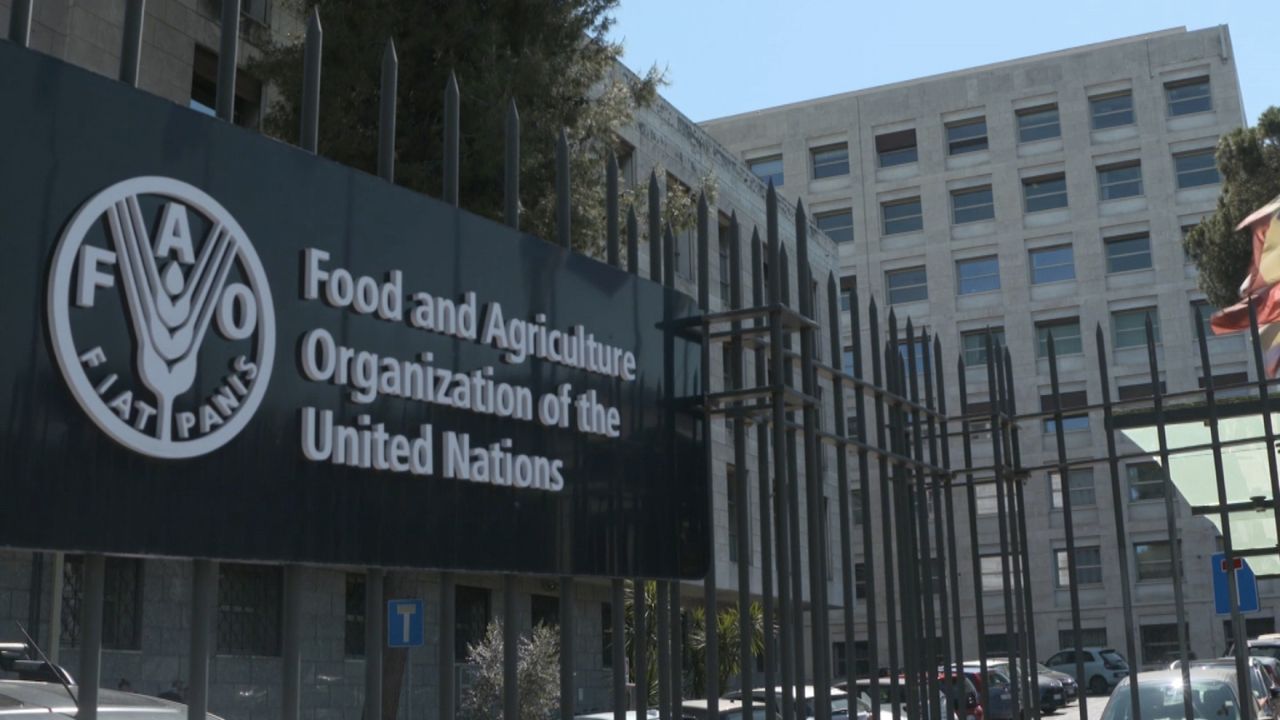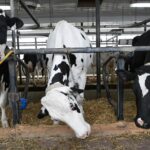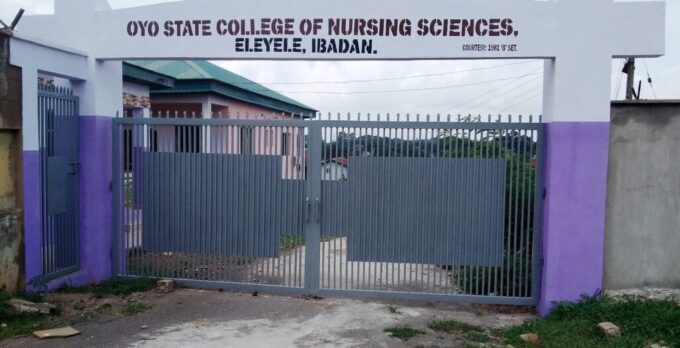By Chinyere Anyanwu
With 30.6 million from 26 states and the FCT projected to face acute food and nutrition insecurity crises between June and August (lean season), experts have pooled strategies to avert the horror.
The troubling projection came from the Food and Agriculture Organisation (FAO), in collaboration with the federal government and their Food security sector partners.
The report further stated that, “Nigeria has continued to host the highest number of food insecure people globally, despite the improvement in the figures” last year, which was put at 33.1 million,
It expressed concern over the level of impact of the food and nutrition insecurity on northwestern states of Zamfara, Sokoto and Katsina as the most affected region, with the northeastern states of Borno and Yobe following closely. Borno, Adamawa and Yobe states, the report noted, account for 15 per cent of Nigeria’s food-insecure population, while the northwest accounts for 17 per cent of the food-insecure population.
“Other notable hunger hotspots requiring urgent attention”, according to the report, “include large parts of Benue, Kwara, Kaduna and parts of Taraba and Cross River states where affected populations are increasingly experiencing high food consumption gaps due to economic shocks, conflict and deteriorating livelihoods options.”
Nonetheless, stakeholders have listed various actions that need to be taken by governments (federal and states) as well as private sector operators towards averting full scale impact of the projected food and nutrition crisis across the country.
James Oyesola, national president, Ecosystem Based Adaptation for Food Security Assembly (EBAFOSA) Nigeria, declared the projected acute food and nutrition insecurity a serious situation that demands immediate action from both the government and private sector, stating that they both have “critical roles to play in addressing this looming crisis.”
Among critical actions to be taken by the government, Oyesola said, include investing in agriculture, provision of subsidies for farmers, strengthening social safety nets, promoting food storage and distribution infrastructure, and fostering collaboration with international bodies.
He said, “the government should prioritise agricultural investments, particularly in areas like irrigation, pest control and the provision of high-yielding seeds. This would not only boost local food production but also enhance food security and reduce dependence on imports. “Offering subsidies on fertilisers, seeds and farming equipment can significantly reduce the cost of production for smallholder farmers, enabling them to increase their output. This can help stabilise food prices and make food more accessible.”
He further explained that, “implementing programmes such as food assistance or cash transfers to vulnerable populations can provide immediate relief to those at risk of food insecurity. Social safety nets can be extended in rural areas, where poverty and food insecurity are more prevalent.
“Improving storage facilities and the supply chain would reduce post-harvest losses and help in better food distribution, particularly in areas facing seasonal food shortages.
“Partnering with organisations like the United Nations’ Food and Agriculture Organisation (FAO) can provide both technical support and financial assistance in addressing the food insecurity crisis.”
For the private sector, Oyesola said operators need to support local agriculture by investing in local farming initiatives, promoting food security education and embarking on Corporate Social Responsibility (CSR) programmes.
The EBAFOSA Nigeria national president noted that, “by creating sustainable agricultural businesses or supporting community-based farming groups, they (private sector operators) can help improve food supply chains.
“Individuals can also engage in awareness campaigns about food security, teaching communities about better farming practices, food preservation techniques and nutrition,” adding that, “corporations can enhance their CSR programmes by supporting agricultural development, contributing to food banks and investing in infrastructure that aids food security.”
According to him, “the projection of acute food insecurity for 30.6 million Nigerians between June and August 2025 is further exacerbated by the effects of climate change. Rising temperatures, unpredictable rainfall patterns and extreme weather events like floods and droughts are already impacting agricultural productivity in Nigeria. These climatic shifts threaten to reduce crop yields, disrupt food supply chains and increase the vulnerability of farmers, especially those in rural areas.”
Noting that the combination of climate change and food insecurity presents a daunting challenge for Nigeria, Oyesola insists that through concerted efforts from both the government and private individuals, the country can build a more resilient agricultural sector and ensure food security even in the face of environmental changes.
He said through a combination of government action, private sector initiatives and individual efforts, Nigeria can mitigate the impending food insecurity crisis by investing in climate-resilient agricultural practices, which include promoting drought-resistant crops, developing irrigation systems that reduce dependency on rain and encouraging agroforestry.
In addition, he tasked the government on “establishing or improving climate-related early warning systems to help farmers prepare for extreme weather events. The government can provide timely information about weather patterns, enabling farmers to adjust their planting schedules and protect their crops from floods or droughts.”
For Oyesola, strengthening disaster response mechanisms is equally critical to building a strong food system that can tackle the food and nutrition insecurity crisis.
He said, “with the increasing frequency of natural disasters due to climate change, the government must have effective disaster response strategies in place. These include relief distribution in areas hit by floods, droughts or other climate-related events, as well as financial support to rebuild agricultural infrastructure.”
An agricultural commodity and rice expert, Dr. Kenechukwu Aloefuna, is however, not accepting the FAO report on food and nutrition insecurity as Nigeria’s reality, as he regards it as data churned out to suit the agenda of the imperialist West.
Dr. Aloefuna, who is the national president of Agricultural Commodity Consumer Association, said the country’s food and nutrition crisis situation is worse than is being projected by the UN agency, FAO.
He said, “I no longer want to believe in anything that will make us promote the projections of these organisations that come from Europe and America in the name of UN, USAID, etc., who in different manners and shades operate under agriculture, food, health or education churning out data and running different programmes whereas they have their own hidden agenda.
“As far as I’m concerned, imperialist organisations like FAO of the UN system make their report in favour of projections and agenda of the West and vis a vis their hidden agenda. The reality is that the problem we have in the agricultural sector today is largely caused by these imperialist organisations.
“You and I have heard the open confession of the American government under President Trump of what international organisations have been doing in insecurity, so the insecurity that has been sweeping across Nigeria today, they in the West have a hand in it. These black people don’t manufacture weapons so I’m very worried that they only come to create alarms while driving their insecurity agenda. Insecurity is not native to us. So even the food insecurity is another agenda to put fear and oppression in us. Unfortunately, our government is toeing the line of dancing to their tunes.”
Dr. Aloefuna further stated that, “the report that is coming to limelight this March 2025 from FAO is, for me, another projectional report to their funder. The hunger in Nigeria and the food insecurity are far beyond that. Already, over 100 million Nigerians have been drawn into abject poverty and this poverty is about ability to farm and ability to feed. So I dare to say that I don’t want to accept those reports. They are not homegrown economy reports. They are economic reports of people who have their own international agenda.
“Unfortunately, as we speak, the Federal Government has declared national emergency on agriculture and it’s neither here nor there. So agriculture is barely thriving on private sector and peasant farmers’ efforts, who are daring the insecurity and committing their lives to it. In some parts of the North, they are paying duties and tariffs to Book Haram and bandits to be able to farm. Look at what is happening in Benue. This is beyond a 30.6 million projection. Look at what is happening in Taraba. What will you call the situation in the entire Kwara right now? Where will somebody farm?
“So I believe the problem is a global political agenda to oppress Nigeria and make it not achieve its dream because in reality, Nigeria has what it takes to feed ourselves, Nigeria has what it takes to farm properly. That no government is solving the insecurity problem is also because those governments are being forced to respond to the international committee agenda of this arms struggle that is going on all over Nigeria.”
To tackle the food and nutrition insecurity issue properly, Dr. Aloefuna insists, “we must take the bull by the horn. This time, we need young people who can prepare themselves for community defense, especially at the time Mr. President is launching the Forest Guards. So it’s time such forest guards must be given full weapons to battle towards food security to protect our farms. We need to protect our agro-commodity for us to be able to follow the issues of food security. The problem is much more deep than is being forecast by FAO.”

















Leave a comment